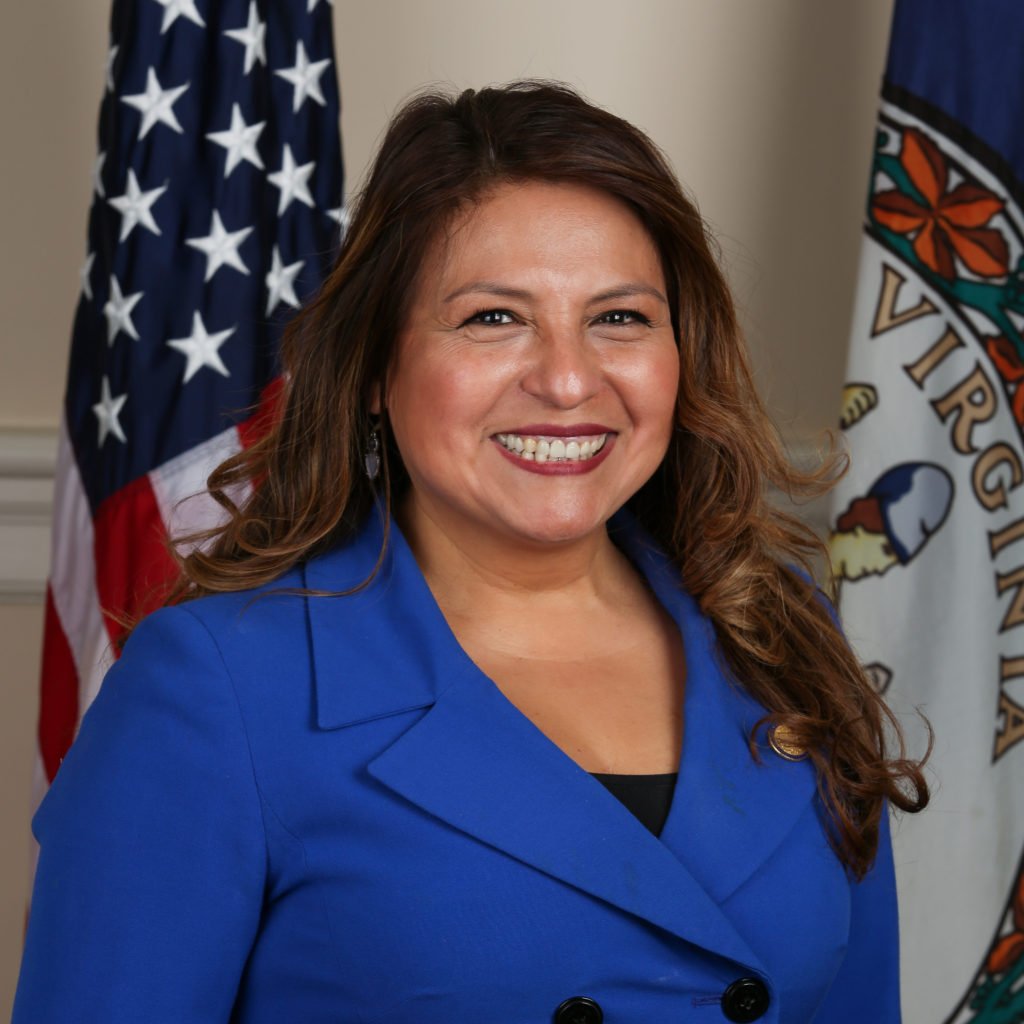Written for Bacon’s Rebellion by James A. Bacon
Virginia may have elected three Republicans to statewide office last year, but it’s still a blue state. It’s not a deep blue state, but a solid plurality of voters identify as Democrats. In the latest Wason Center poll, 35% of respondents said they generally consider themselves to be Democrats, compared to 29% who identify as Republicans.
An important reason that Republicans managed to sweep the statewide offices last year is that (a) nearly a third of the electorate (31%) identifies as “independent” and (b) independents skew more conservative than liberal. The same poll found that 34% of Virginia voters consider themselves conservative or very conservative compared to 27% who declare themselves liberal or very liberal.
However, while Governor Glenn Youngkin scores a positive approval rating — 50% approval versus 40% disapproval — 46% of Virginia voters say they are more likely to vote for a Democratic candidate for Congress compared to 40% who say they will go Republican. In an election in which President Joe Biden, a Democrat, is highly unpopular and in which Democrats are widely expected to lose control of Congress, that is a remarkable show of Democratic Party strength.
Perhaps Wason’s latest poll misses a subterranean rightward shift in the electorate. I’m willing to hear out anyone who wants to make that case. But I’m inclined to the view that if Republicans are to accomplish anything lasting, they need to acknowledge that they are underdogs in Virginia and, as underdogs are inclined to do, work harder and smarter than the other guy.
And that brings me to one of my pet peeves: Youngkin’s gallivanting around the country.
Youngkin insisted in a recent network news interview that he has no interest in running for national office and that he will serve out his term as governor. I’m glad to hear that. But I would add that he needs to devote his attention to getting things done here at home.
Look, I like Youngkin. I like his priorities; I like his policies; I like his demeanor; I like his rhetoric; and I like his outreach to minorities. He has done a lot of things to get Virginia back on the right track, especially in schools, higher ed, taxes, and (with qualifications) energy. But almost all of his accomplishments have come through executive orders and appointments, all of which can be undone by the next Democratic governor — which has a high probability of happening in a state with a Democratic-leaning electorate.
Youngkin’s first year saw only modest legislative victories. That’s unsurprising given the fact that the General Assembly session began the same month he stepped into office. Every governor has a learning curve. But he has had nine months since then to get ready for the next two legislative sessions when he has the best opportunity to put his stamp on the state, and what has he done?
Has Youngkin launched any major commissions or task forces to highlight important issues and devise legislative remedies? Other than a commission looking into antisemitism — is the rise of anti-Israel sentiment on college campuses really a pressing concern in Virginia? — I can’t think of anything.
Has he been stumping the state in support of Republican legislators here in Virginia? Has he been recruiting promising candidates to run for the state Senate and recover that body from Democratic control? Even if Republicans re-take the Senate, where are the big ideas?
In his rhetoric, Youngkin has developed a promising theme of tempering the soaring cost of living — higher taxes, higher electric bills, higher college tuitions, and higher housing prices. In an era of punishing inflation, that’s a great strategy. But what do we do about those things?
Youngkin made a promising start by outlining an all-of-the-above energy policy. But he won’t get to first base as long as Democrats, for whom climate change represents an existential threat, control the Senate. He fought to give Virginians a one-time tax rebate this year, when the state was flush with tax revenue and COVID helicopter dollars from Uncle Sam. But a one-time rebate lasts… only one year. He mau-maued Virginia’s public colleges and universities to keep tuition stable this year. But they agreed only because of gigantic increases in state funding, and, by the way, the tuition freeze didn’t apply to student fees or charges for on-campus food and housing. He has highlighted the problem of escalating rents and housing prices. But, while advocates for the poor cry for eviction moratoria, I have seen no concrete alternatives coming from the Governor.
If Youngkin wants to bring about lasting change, he has to identify winning proposals, gain public support for them, and win majorities in both houses of the General Assembly — all in a state with a hostile media, a network of heavily funded “progressive” advocacy groups, and an electorate that skews Democratic. He can’t do that in Nevada, Michigan or Texas. He needs to spend every waking minute at home.
